Hanadi TUTUNJI's speech at European Microfinance Week 2024
Hanadi Tutunji, Technical Assistance Program Manager, spoke at the European Microfinance Week 2024 in Luxembourg (EMW 2024).
THE November 14, this session highlighted the challenges and opportunities related to the financial inclusion of refugees, a central theme of this edition. Concrete examples, notably in Uganda, illustrated the need to strengthen the capacities of microfinance institutions (MFIs) and financial actors to meet the specific needs of this vulnerable population.
Refugees, often perceived as a temporary population, actually reside in host countries for long periods. Uganda, For example, 77 % refugees have been living there for more than ten years, making the country the largest host of refugees in Africa and the fifth largest in the world.
During this session, Hanadi Tutunji emphasized the importance of developing tailored financial solutions to promote the economic integration and self-reliance of refugees. She also highlighted opportunities for collaboration with strategic partners, emphasizing the need to choose partners aligned with the values of inclusion and social responsibility. The selection of partners is based on their ability to understand the specific needs of refugees and to offer innovative and sustainable solutions.
Celebrating women, drivers of change
In this International Women's Day, Grameen Crédit Agricole wishes to recognize the essential role that women play in the society and economy of emerging countries. For 16 years, Grameen Crédit Agricole has been promoting the empowerment of women by strengthening the partners it supports who provide them with tailored global financial solutions. Among the organizations supported by Grameen Crédit Agricole are: 6.7 million of beneficiaries including 73 % women And 76 % customers in rural areas.
Women are true drivers of economic and social change. When they have the means to undertake and generate income, they prioritize investing in the well-being of their families and communities. Their financial autonomy strengthens their decision-making power within the household and allows them to break the cycle of poverty.
Grameen Agricultural Credit promotes local financial inclusion and supports women entrepreneurs in emerging countries: farmers, traders, peasants, and artisans. Their determination, creativity, and resilience are a constant source of inspiration. This is why we will continue to innovate to better meet their specific needs.
On this symbolic day, let us pay tribute to all these exceptional women who, through their hard work, are building a better future for themselves, their families, and their local communities. Together, let us continue our efforts for a fairer and more inclusive society, where gender equality is fully achieved.
Thierry Uy Tiv and Robin Lavrilloux of the Grameen Credit Agricole Foundation Podcast participate in a discussion on financial inclusion in Thailand
Thierry Uy Tiv (Innovation and customer) and Robin Lavrilloux (Head of the Financing Team), participated in the recording of a podcast in Thailand dedicated to financial inclusion, organized by the Macroeconomic Policy Bureau, THE Fiscal Policy Journal and the KM TaskforceThe event highlighted the transformation of communities through inclusive finance.
The discussions addressed the challenges and opportunities related to access to financial services in regions marked by significant socioeconomic inequalities. Experts shared their experiences and discussed innovative strategies to promote financial inclusion, such as the use of fintechs and incentive-based tax policies. They also highlighted the importance of local initiatives that enable disadvantaged populations to better access banking services and microfinance solutions, particularly for women, who are often excluded from financial services.
Additionally, they highlighted the crucial role of responsible investments in creating a more inclusive and sustainable financial ecosystem. The experience of other countries was discussed to illustrate how successful models of financial inclusion have transformed the lives of many communities around the world.
VisionFund Tanzania: Digital microloans, women entrepreneurs, and great success stories.
In 2023, Grameen Crédit Agricole supported VisionFund Tanzania , with a loan of 2 million euros. This microfinance institution improves the lives of low-income entrepreneurs by providing them with sustainable and inclusive financial services. These loans play a vital role in empowering women entrepreneurs, who represent nearly 60 % of their customers. Thanks to this funding, they develop income-generating activities, improve their living conditions and invest in the education of their children, thus unlocking the economic and social potential of the local community.
Digitalization is also a key lever for VisionFund Tanzania. Using digital tools, managers have simplified loan processes, made services more accessible, and improved operational efficiency. This innovative approach has made life easier for women entrepreneurs, particularly in rural areas, where 63 % of the customer is located.
Inspiring testimonies from women entrepreneurs illustrate the tangible impact of these loans: local job creation, increased family income, and increased self-confidence. These results demonstrate that microfinance, combined with digitalization, is a powerful tool for unlocking the economic potential of communities and sustainably improving quality of life.
2023 Annual Report of the Inclusive Finance Fund in Rural Areas
The FIR (Inclusive Finance in Rural Areas) fund was created in 2018 by the Foundation to provide Crédit Agricole Group entities with a specific fund for inclusive finance worldwide. From the outset, 21* Regional Funds participated with Amundi And Crédit Agricole Insurance to the financing of 8 rural microfinance institutions present in 8 countries in Sub-Saharan Africa, Eastern Europe, Central Asia and Southeast Asia.
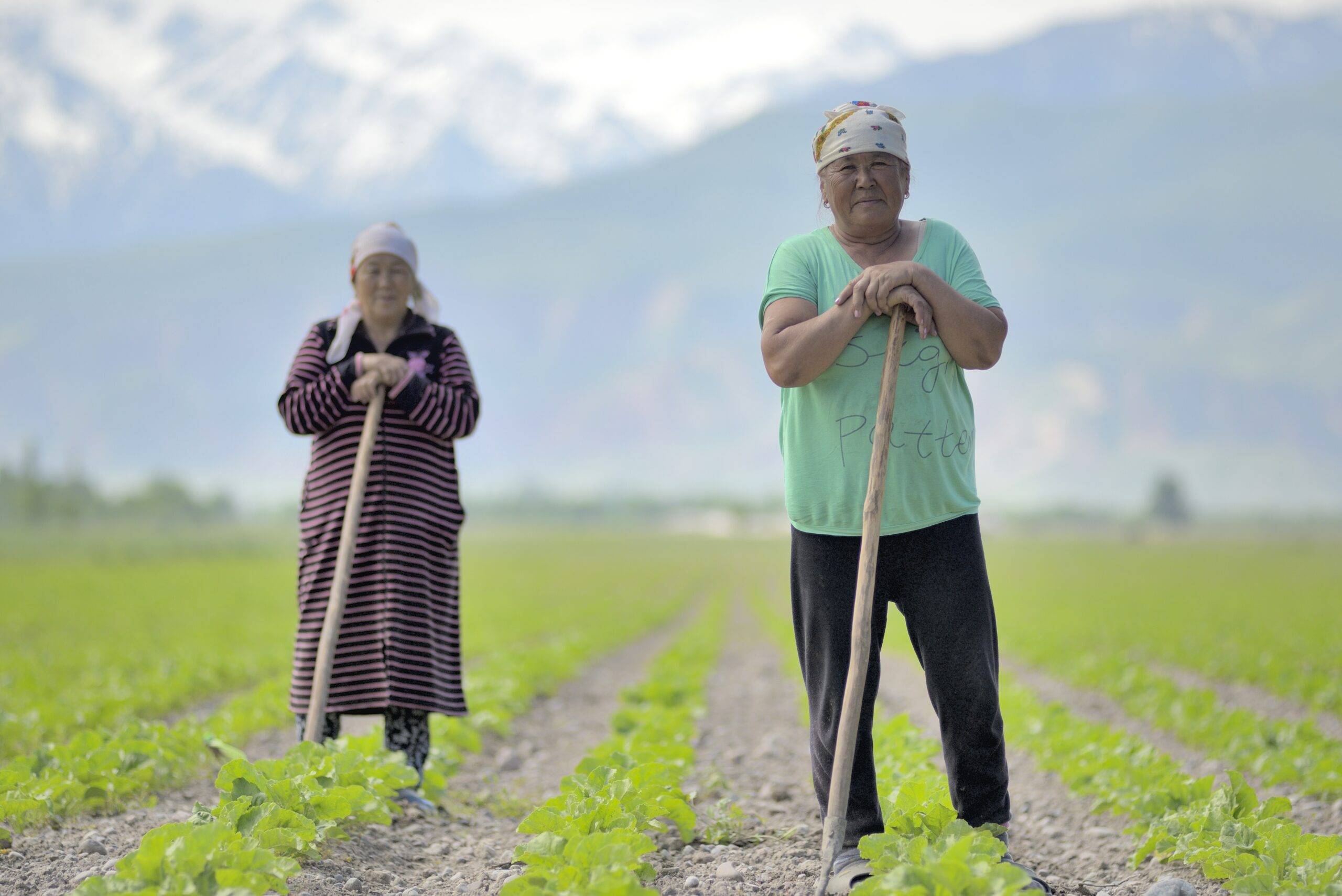
In 2023, the FIR fund increased its investments to finance micro-entrepreneurs. Seven new loans were granted to MFIs, allowing it to achieve a very good asset deployment rate (80%). As of December 31, 2023, outstanding loans stood at €8,350,000, representing €80 of asset deployment. These microfinance institutions, in turn, finance micro-entrepreneurs, of whom 67% are women, 75% are located in rural areas, and 37% are farmers.
By the end of December 2023, the FIR fund supports 8 microfinance institutions: Mikra in Bosnia and Herzegovina, Lazika in Georgia, Asian Credit Fund in Kazakhstan, Oxus in Kyrgyzstan, Prima Finantare in Moldova, Furuz in Tajikistan, AMZ in Zambia and Pahal in India.
*Alpes Provence, Alsace-Vosges, Brie Picardy, Centre-east, Centre-France, Centre Loire, Centre-West, Champagne-Burgundy, Charente-Périgord, Finistère, Franche-Comté, Ille-et-Vilaine, Languedoc, Loire-Haute Loire, Martinique-Guyana, Normandy-Seine, Provence Côte-d'Azur, Reunion, Savoie, South Rhône Alpes and Touraine Poitou
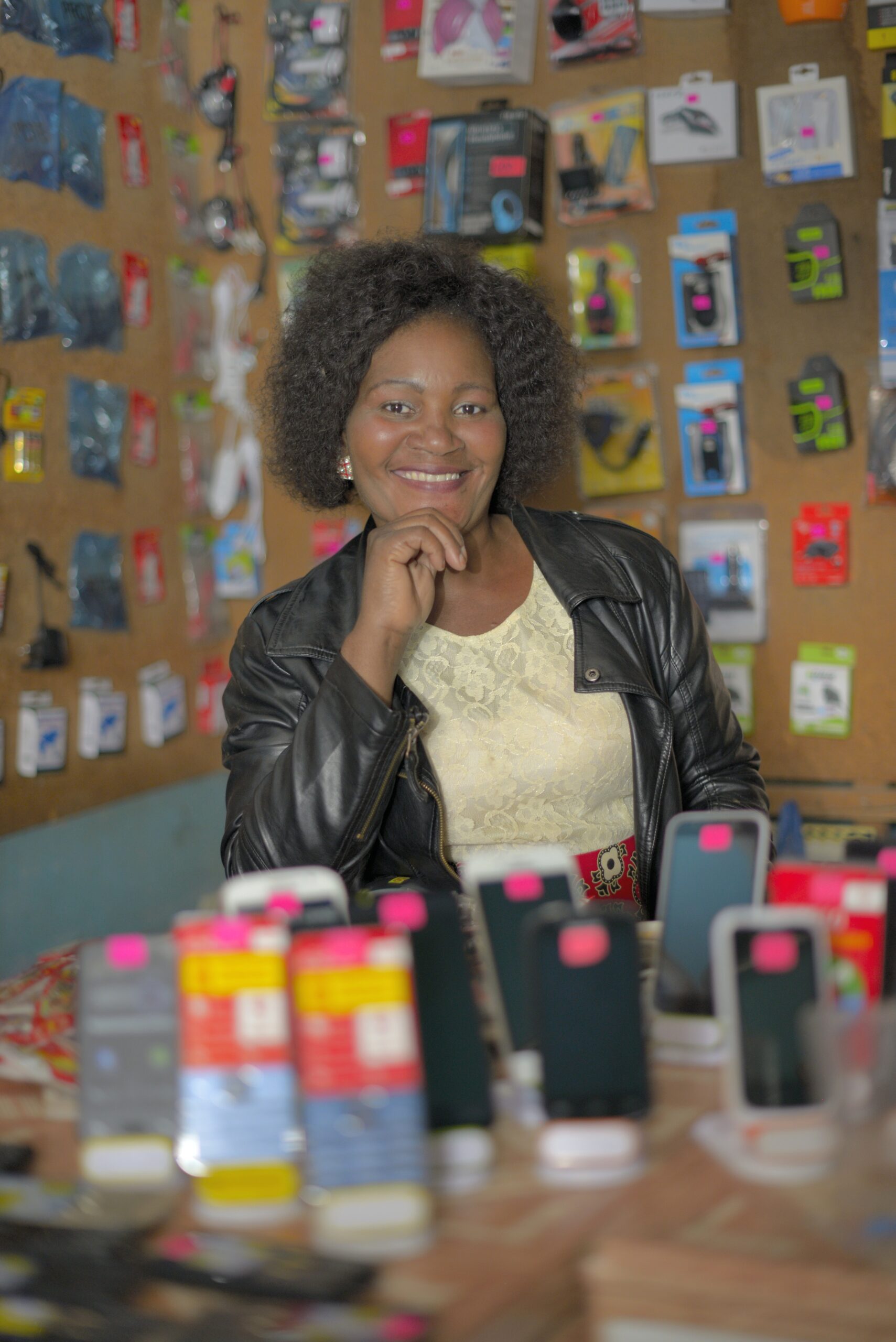
Mission of the Foundation's administrators to Senegal
From December 8 to 10, 2024, the Foundation's directors carried out a mission to Senegal, punctuated by inspiring visits and constructive discussions with local partners. This immersion aimed to better understand the impact of the Foundation's initiatives in the country.
On the agenda for the first day: visit to the agency of VisionFund Senegal in Fatick, where administrators met with microcredit clients, mainly women, who use these loans to develop income-generating activities. The day continued with a discovery of Plastic Odyssey Factory, an innovative recycling plant, and concluded with a dinner with local entrepreneurs.
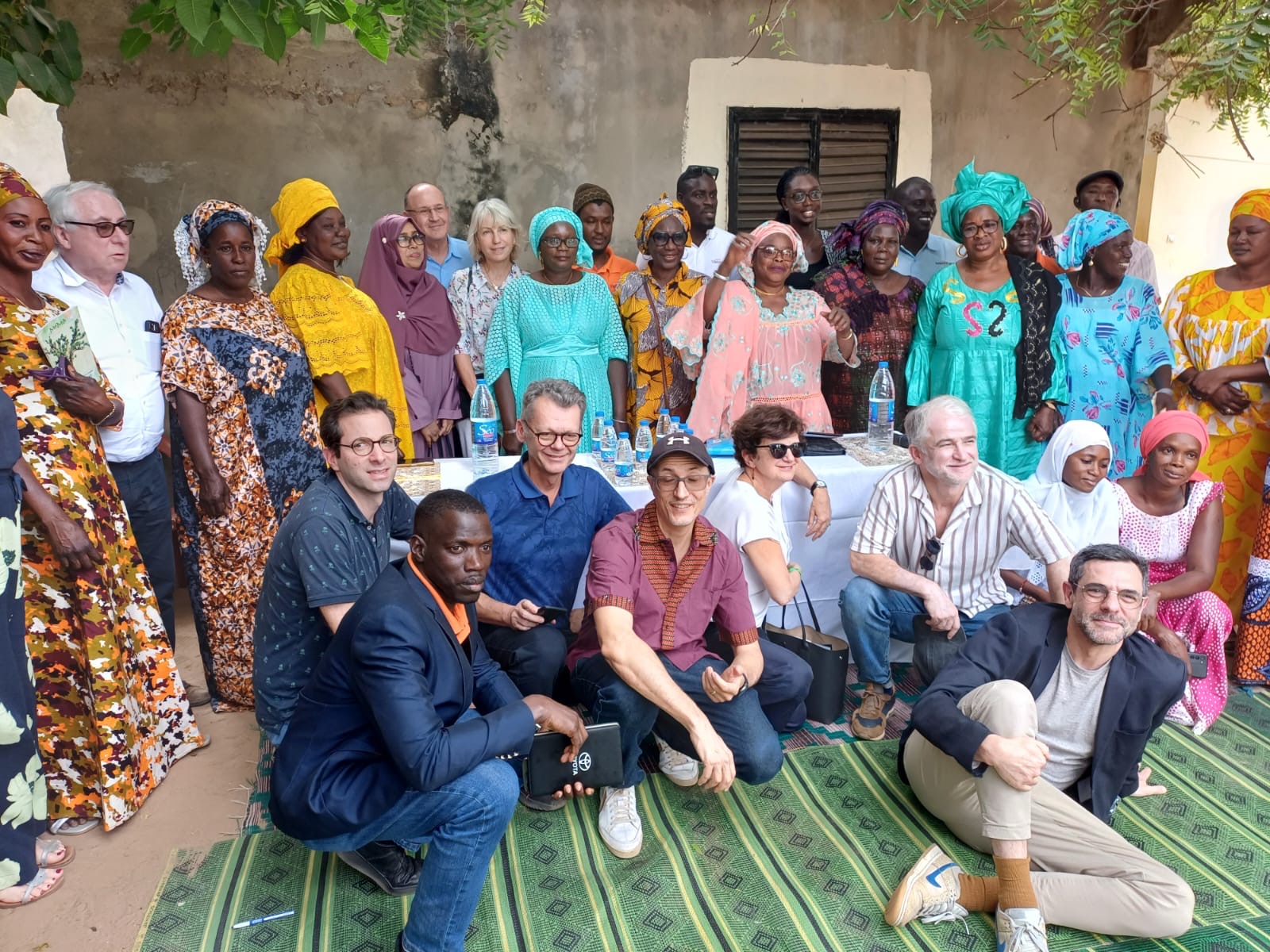
The next day, the administrators visited the Nobin Project, a program aimed at transforming unemployed young women into entrepreneurs, as well as Haskè Conseil, an innovation hub dedicated to private sector development in West Africa.
Through this mission, the Foundation reaffirms its commitment to supporting local initiatives that drive economic, social, and environmental progress. These meetings highlighted the central role of microfinance and impact businesses in improving the living conditions of vulnerable populations in Senegal.
Grameen Crédit Agricole Foundation and Proparco strengthen their partnership

December 6, 2024, at Proparco headquarters, a new agreement between the Grameen Crédit Agricole Foundation And Proparco has been signed. This ambitious partnership aims to join forces between the two organizations to promote financial inclusion in Africa, the Middle East, Asia, and the Balkans.
By partnering with Proparco, the Grameen Crédit Agricole Foundation aims to scale up the implementation of high-impact projects. These initiatives include technical support to promote:
- Gender equality,
- Adaptation to climate change,
- Financial inclusion of refugee populations.
Historical partner of the Foundation since 2010Proparco shares common strategic objectives, particularly in the area of responsible financial inclusion. This new agreement strengthens a rich collaboration, enabling both entities to amplify their impact and effectively address economic and social challenges in the regions concerned.
Two new technical assistance programs will be supported by Proparco and implemented soon:
- African facility: Innovate to support rural microfinance institutions with a strong social impact in sub-Saharan Africa and facilitate sustainable entrepreneurship and the empowerment of women.
- Financial inclusion of refugees and host communities in Uganda
This renewed partnership demonstrates the commitment of both organizations to building innovative and sustainable solutions for the most vulnerable populations.
_____________________________________
To find out more:
Proparco Proparco is the AFD Group subsidiary dedicated to the private sector. Its operations aim to strengthen the contribution of private actors to achieving the SDGs. Proparco participates in financing and supporting businesses and financial institutions in Africa, Asia, Latin America, and the Middle East. Its action focuses on key development sectors: infrastructure with a focus on renewable energy, agribusiness, financial institutions, health, and education.
Creation of the Women Empowerment for Climate fund with Beyond Finance and FosterImpact, by, for and with women
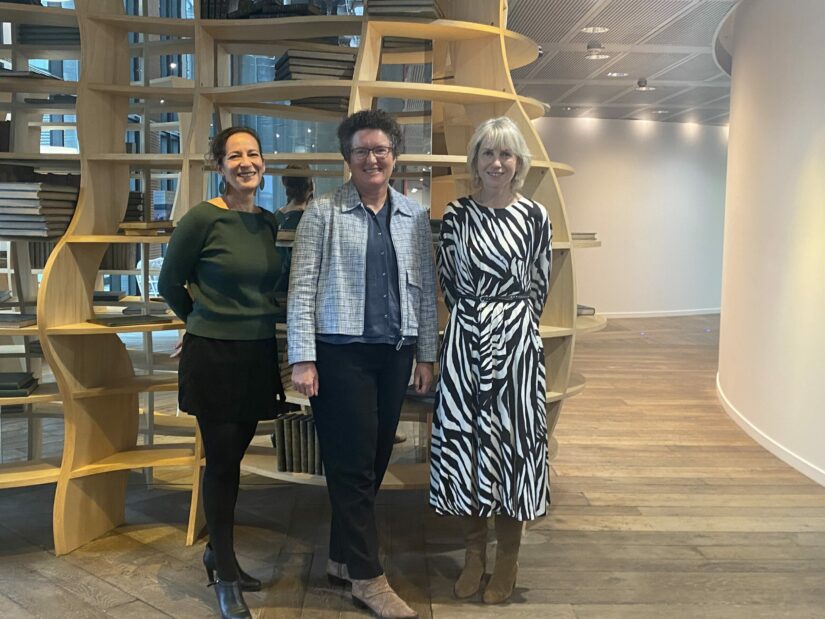
Pictured, from left to right: Camille Huret, Founder and CEO of FosterImpact; Maud Savary-Mornet, Founder and CEO of Beyond Finance; and Véronique Faujour, Executive Director of the Grameen Crédit Agricole Foundation.
November 27 – Grameen Crédit Agricole Foundation, Beyond Finance and FosterImpact announce the creation of the impact fund Women Empowerment for Climate, which aims for $100 million for adaptation to climate change, by, for and with women.
Women are on the front lines of climate change.
A study conducted in March 2024 by the FAO[1] A study on food and agriculture in 24 countries and 100,000 households concluded that a one-degree rise in temperature would lead to a 34% drop in women's income. In times of drought or rain, women work harder, walking further to supply their communities with food, water, and firewood.
Yet women can play a key role in resilience solutions and sustainable resource management. They are powerful agents of change, not only for the development of economic growth but also for the success of climate policies.
It is based on this observation that the Grameen Crédit Agricole Foundation, Beyond Finance and FosterImpact have joined forces and announced the creation of Women empowerment for climate, a $100 million impact investment fund dedicated to empowering women to succeed in climate change adaptation policies.
Women Empowerment for Climate : a fund for action, by, for and with women
Women are not only the most vulnerable to climate change, but also key players in adaptation strategies. Thanks to their expertise, they develop local solutions for sustainable agriculture, natural resource management, water, energy, and food conservation. However, despite their skills, women are still largely underrepresented in decision-making processes, they are not sufficiently consulted, and their knowledge is not always integrated into adaptation strategies and climate policies.
Therefore, for women to be able to fully play their role in the fight against climate change, it is crucial to strengthen financial support to enable them to have access to the necessary financing.
Faced with inequalities exacerbated by global warming and convinced of the central role of women in climate solutions, the leaders of the Grameen Crédit Agricole Foundation, Beyond Finance and FosterImpact have joined forces to launch the fund Women empowerment for climate.
This impact fund is dedicated to sectors that primarily benefit women and climate adaptation in Asia and Africa.
It will target three key sectors where women have a direct impact on the success of climate policies: access to clean water, access to clean energy, and access to sustainable agricultural techniques.
The fund Women empowerment for climate aims to finance and support local microfinance institutions and local social impact businesses, committed to transforming their products and services (credit, savings and insurance), and adapting them to the specific needs of women, to include women in their governance and decision-making processes, or to finance entrepreneurial projects led by women.
Throughout their transformation journey, investment recipients will be supported by technical assistance, and loans will be indexed to non-financial performance indicators – such as greater representation of women in key roles or the development of climate adaptation products and services dedicated to women, to name just a few.
The fund aims to raise $100 million from private and public investors in 2025.
"We are convinced that women are true agents of change; they must be more empowered and involved in decision-making. This is not just a question of equality; for us, it is a necessity for developing regional economic growth and is a condition for the success of climate policies."
Véronique Faujour, General Delegate of the Grameen Crédit Agricole Foundation
" We are very optimistic about this partnership which allows for alignment on common values and a shared observation of climate issues by, for and with women.. »
Maud Savary-Mornet – founder and CEO of Beyond Finance and Camille Huret – founder and CEO of FosterImpact
[1] FAO. 2024. The unjust climate – Measuring the impacts of climate change on rural poor, women and youth.
Encouraging MFIs to work with refugees: Four lessons learned from Uganda
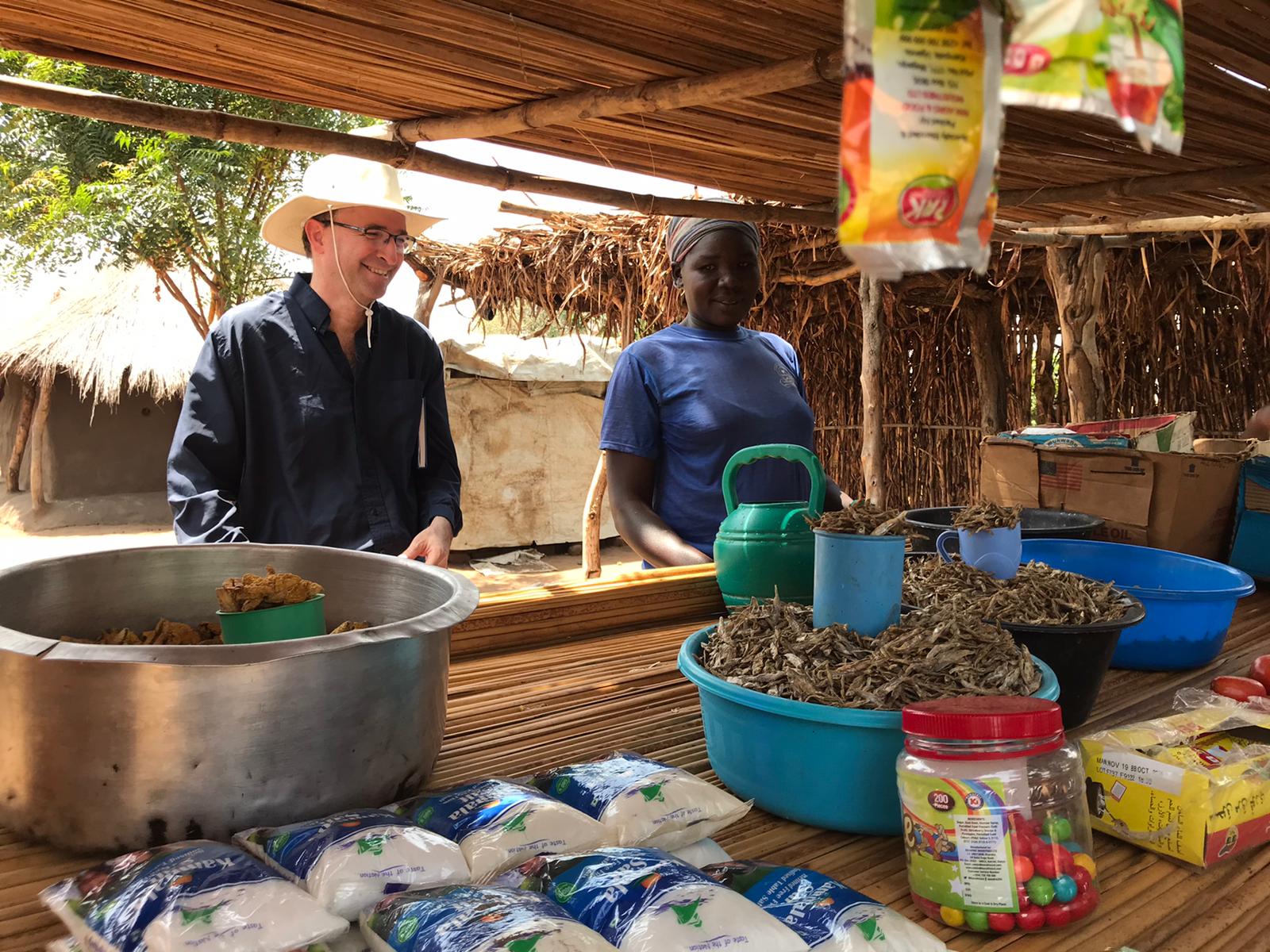
Photo credit: Didier Gentilhomme
By Micol Pistelli, UNHCR and Philippe Guichandut, Grameen Crédit Agricole Foundation
- Micol Pistelli is responsible for financial inclusion at UNHCR.
- Philippe Guichandut is Secretary General of the Grameen Crédit Agricole Foundation.
With more than 1.7 million refugees and asylum seekers Within its borders, Uganda hosts the largest refugee population in Africa and the fifth largest in the world. Although the country has a progressive regulatory framework conducive to the socio-economic inclusion of displaced persons, refugees still face barriers in accessing business loans and other financial and non-financial services. For microfinance institutions (MFIs), their limited understanding of the socio-economic conditions of refugees represents a major challenge, often leading them to view them as transients, dependent on humanitarian aid and lacking reliable documentation.
To help address these issues, five years ago the AIDS (Swedish cooperation), the UNHCR (United Nations High Commissioner for Refugees) and the Grameen Crédit Agricole Foundation have launched a blended finance program in Uganda, the first of its kind, based on the results of a market study carried out a year earlier. The program's distinctive approach combined donor contributions and investor capital in the refugee context. It included a Sida grant for technical assistance and operational support, technical and logistical support from UNHCR, and debt financing from the Grameen Credit Agricole Foundation to meet the liquidity needs of MFIs lending to refugees, as well as technical assistance oversight.
Some key lessons learned from this successful program
Despite launching under challenging conditions—COVID-19 was followed by strict lockdowns and food ration cuts that exacerbated refugees’ vulnerabilities—the program achieved high repayment rates, demonstrating that refugees are reliable borrowers. With over 130,000 clients from both refugees and host communities, portfolio quality (PAR 30) showed no major differences between the two groups.
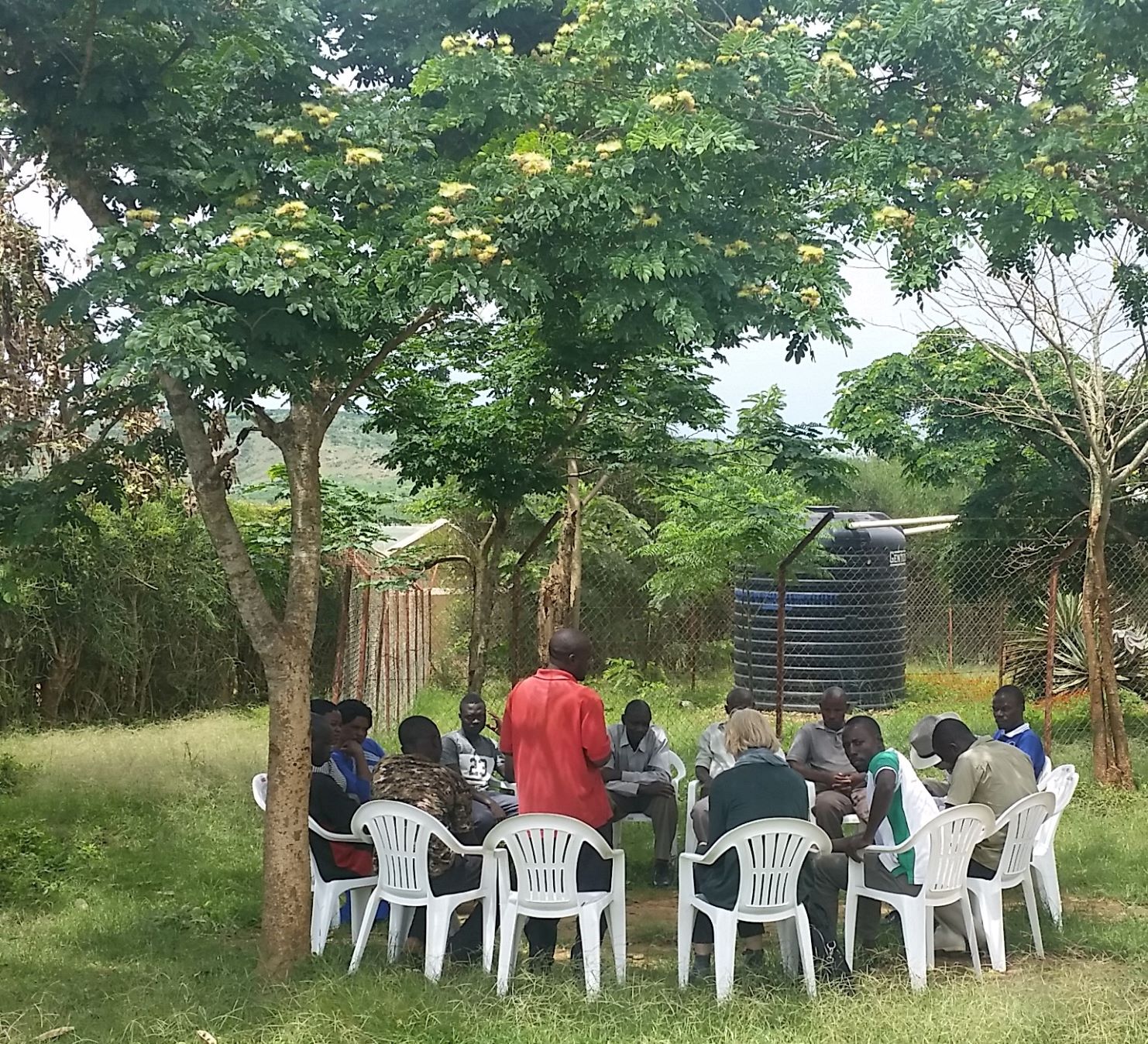
Photo credit: Didier Gentilhomme
Rates have ranged from a high of 11 % during difficult times to a low of 3 % to date, with refugee rates sometimes even lower. Moreover, agencies located in refugee camps have become sustainable at the same rate as those located in other locations.
These positive results provide valuable lessons for structuring mixed finance programs for refugees.
-
Loan guarantees are not the solution
In markets with large displaced populations, loan portfolio guarantees—which provide protection against potential losses—are often the preferred mechanism for development banks and donors to encourage MFIs to lend to refugees, and it was an option we considered before launching our program in Uganda. However, we decided against this approach for two reasons:
- The firsts Kiva data, dating from six years ago, showed that forcibly displaced people were as solvent as nationals
- We were concerned that guarantees would encourage MFIs to relax their credit assessments in favor of market expansion, which could have negative financial consequences for refugees and host community clients.
While attractive to MFIs, guarantees can have unintended consequences for clients. If MFIs relax credit assessments, client default rates are likely to increase. Refugees may take out unaffordable loans, creating cycles of over-indebtedness and financial instability and damaging their credit histories. Higher default rates can also reinforce the perception that refugees are inherently risky clients, limiting future access to loans and justifying the need to impose new guarantee schemes, creating a vicious cycle. Furthermore, loan guarantees can distort the financial landscape by favoring large MFIs, which tend to be able to access them, rather than fostering a more inclusive environment.
Our program results and high repayment rates suggest that loan guarantees were not necessary. Blended finance programs should instead focus on market-based incentives, which leads to the next lesson.
-
Implement market-friendly incentives
Market-based incentives aim to encourage MFIs' engagement with refugee clients. They can help MFIs overcome the logistical challenges of operating in refugee camps and explore innovative solutions, such as mobile banking and digital lending, which are particularly useful in remote areas. In Uganda, providing training proved important because the success of the program depended on strengthening the capacity of MFIs to effectively serve refugee clients.
The market-friendly incentives in our program included funding to cover part of the costs for:
- Establishment of branches in refugee settlement areas;
- The purchase of equipment;
- The development of digital financial products;
- Production of marketing materials, such as brochures and leaflets in the language of refugees;
- Training to improve staff understanding of the unique challenges of refugees.
3Data on customer needs, behaviors and aspirations is essential
Another determining factor in the success of the program was the initial market assessment conducted six years ago, as well as subsequent studies carried out by participating MFIs, VisionFund and Ugafode.
VisionFund's assessment of 6,700 refugee members of existing savings groups revealed that these communities possessed sufficient financial capacity to be reliable clients, with access to daily and weekly markets in the camps, good network coverage, mobile money agents, and entrepreneur groups. The market assessment also showed that the “flight risk” of refugees was greatly overestimated. Most refugees had no intention of returning to their home countries or settling elsewhere, and were primarily seeking economic independence. Our program confirmed this finding, as the few cases of resettlement had no significant impact on portfolio quality.
These studies provided critical insights into the financial behaviors and aspirations of refugees in Uganda, revealing that there was no need to develop refugee-specific financial products. Instead, MFIs needed to adapt their existing products and procedures to make them more accessible to refugees.
-
Existing products can be made more accessible to refugees
Although the program did not highlight the need for refugee-specific products, some modifications were necessary to make existing products more accessible:
- Adjusting internal policies and procedures to accept refugee ID cards for KYC compliance
- Updating Management Information Systems (MIS) to monitor the refugee segment
- Increased flexibility in terms of guarantee requirements
- Training frontline staff on how to expand services to this new segment
VisionFund introduced the FAST (Finance Accelerating Savings Groups Transformation) product, which provides loans to savings groups without requiring traditional collateral. Instead, the groups' collective savings were used as collateral, making the product more accessible to refugees. Similarly, UGAFODE has adapted its loan products, such as the “Smart Woman Loan” and the “VSLA Loan,” to offer flexible collateral, which has helped refugees, especially women, access financial services.
The initial market research also highlighted the importance of non-financial services, such as financial literacy training, digital finance, and business development, for refugees with limited experience in formal financial systems. These services were delivered in partnership with NGOs and local refugee organizations.
Collaborate to ensure MFIs are ready to welcome refugees
Drawing on our experience in Uganda, we argue that guarantees should not be the primary incentive for MFIs to serve refugees. While guarantees can be useful for targeting specific sub-segments, such as SMEs or start-ups in riskier markets, whether or not they are refugee-run, a different approach is needed to make MFIs “refugee-ready.”
To this end, donors, development banks, humanitarian agencies, and investors should collaborate to create blended finance schemes that prioritize understanding the socioeconomic conditions of refugees. These programs should provide market-friendly incentives by supporting market research and covering a portion of MFIs' initial operational costs related to providing services to refugees.
Our program's partner MFIs continue to expand their reach to refugees and host communities. We hope to conduct an impact study on financial outcomes for the target population beyond the results presented in this blog.
_____________________________________
To find out more:
The United Nations High Commissioner for Refugees (UNHCR) is mandated by the United Nations to coordinate international action for the protection of refugees. The organization provides essential assistance, helps guarantee fundamental rights, and develops solutions aimed at the well-being of its target populations. UNHCR works in 128 countries on behalf of 74.1 million people.
//www.unhcr.org/ / @Refugees
The Swedish International Development Cooperation Agency (Sida) is an agency working on behalf of the Swedish parliament and government with the mission of reducing global poverty. Through its activities and in cooperation with other stakeholders, it contributes to the implementation of Swedish international development policy. The agency is present in 35 countries in Africa, Asia, Europe, and Latin America.
www.sida.se / @Sida








